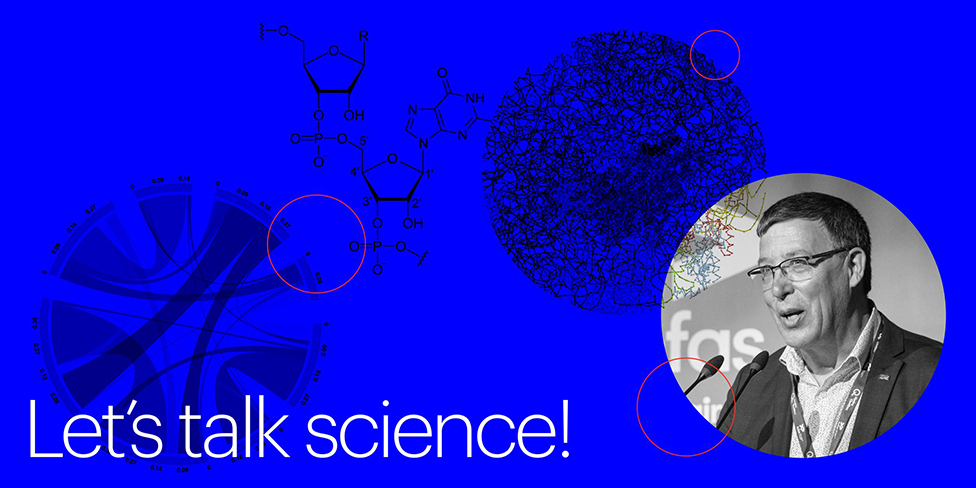Acfas is currently celebrating its 100th anniversary. To commemorate this milestone, we will be featuring a series of interviews with past board chairs of the association. They will reflect on their experiences as well as the importance of French science in today’s society. What follows is the first interview in this series.
Recently, University Affairs sat down with Jean-Pierre Perreault, vice-president of research and graduate studies at Université de Sherbrooke and president of Acfas (an organization that represents francophone researchers in Canada) where he gave an impassioned and thorough breakdown of the various issues facing science now and in the future. He also spoke about dissemination formats, multidisciplinarity, scientific culture and the importance of young scientists.
Dr. Perreault was also keen to share his thoughts on the status of French-language science in Canada. He believes much more should be done to publish and disseminate science in French, as English has started to dominate the research landscape. “Since 2005, 90 per cent of new Canadian scientific journals are in English. Some seven to eight per cent are bilingual, which means very little is published in French,” he said. According to Dr. Perreault, Canada needs to change the way French-language research is produced.
Sharing science
Research dissemination, explained Dr. Perreault, isn’t just about publishing. “There’s so much literature nowadays, people struggle to keep up.” He believes the scientific community should consider different ways to present all of this research, and suggests condensing and compressing information into “capsules,” while also providing access to specialized data. New translation platforms could also be used to help disseminate science in French. Unfortunately, though these platforms are becoming more sophisticated, they aren’t perfect. Dr. Perreault admits that some concepts are hard to translate, which somewhat limits this model, but ultimately, what matters most is doing the science and finding ways to publish it in French.
French-language education is also important as it helps preserve the scientific vocabulary and manner of articulating ideas that are core to francophone cultural identity. But it is only part of the equation, Dr. Perreault stressed. Multidisciplinary and interdisciplinary research are the keys to building a stronger French-speaking scientific community, he added, although encouraging interdisciplinarity isn’t easy. He feels this shift is most likely to occur among young scientists and at the frontiers of knowledge. To that end, he calls on researchers to push disciplinary boundaries and to critically examine their fields to achieve the best of all worlds.
While defending the role of multidisciplinarity in science, Dr. Perreault also noted that the pandemic and other current global issues have cast into sharp focus how valuable science and scientific culture is helping to solve societal issues. “We’ve had to reinvent remote work, our relationships and distance learning. Things will never be the same, and so many areas are affected,” he explained. The pandemic has shown how important it is to fund research in all disciplines, without exception. To him, this experience proves science culture stands as a bulwark for our democracies and is essential for the welfare of society.
Though he is the head of a scholarly association, Dr. Perreault is first and foremost vice-president of research and graduate studies at U de Sherbrooke, two spheres he feels go hand in hand. “I love teaching. I truly believe that my biggest contribution is creating an environment where students can thrive,” he said. “What is interesting, from an intellectual point of view, is exchanging ideas as equals. That’s how we push the limits of knowledge.” To him, this interdisciplinarity grounded in two-way discourse – between researchers, but also between professors and students – is the basis of science itself.
Dr. Perreault has integrated this vision into his daily life. He always looks for opportunities, such as conferences, to add things to his “lab bench” and use them in his field. For example, in his work as a molecular biologist and RNA (Ribonucleic acid) expert, Dr. Perreault collaborated on a student’s project to modulate a ribosome. (A ribosome is a particle present in the cytoplasm of living cells that plays a key role in decoding genetic information written on messenger RNA, or mRNA.) The pair created a “modulator” to inhibit or activate the ribosome at a specific time, integrating the same equations into the computer system. “We could have just published a scientific article,” he explained, “but we decided we may as well be creative and original and see the experiment through.”
Dr. Perreault, who sees himself as a lifelong student, is a strong advocate for convergence science. “I would never just study to get an A-plus. I want to master the material and be able to use it for the rest of my life.”
